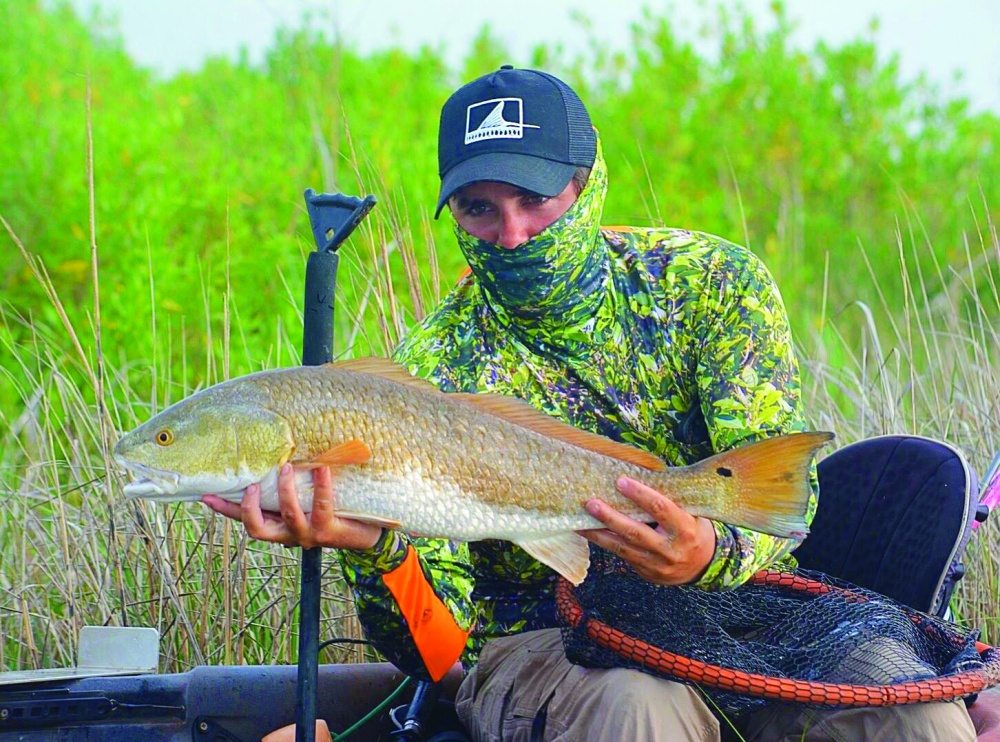Photos courtesy of Fishhide Sportswear High Tides
Super High Tides? Hit The Rock Wall
By Capt. Bryan Barnard
Spring, flood or high tides… whatever you call above-average tides, they are typical for the season. Mid spring into early summer, water levels are typically flooding over docks, ramps and bulkheads, but for the purpose of this article let’s talk about how these bull tides relate to the location of fish.
Sure it’s true that big blue northers can push water out of the back lakes and bays and concentrate fish into tighter areas, often making them easy targets. But dare I say on super high tides fish might be as easily targeted?
It is often stated that on high tides in spring, fish can scatter and be almost anywhere. This statement is absolutely founded on the good word of people who struggled to find fish in their honey holes or secret spots.
Consider this theory I have found to be almost always certain, the “Playground Theory.” On a playground, kids play on their favorite pieces of equipment. Some kids go to less-desirable pieces of equipment due to high occupancies on the tire swings or wavy slide. Then one day a brand-new rock wall is installed. Almost every child leaves his or her former favorite swing or rope ladder, and this brightly colored truth of heaven’s existence known as a rock wall becomes over-crowded.
My experiences have found this to be a perfect analogy, in most cases, to how redfish, speckled trout, flounder and black drum fish relate to new areas made available by high tides. Areas such a large shell pads that are typically above water on an average tide hold good numbers of better-sized fish when covered with water. But it doesn’t stop at shell.
Tall grass shorelines make excellent refuge for bait such as crabs, shad, mullet and shrimp. When tides swell, it drives these tiny critters into the foliage. You can bet the reds will go in after them. Fishing super tight to and actually in flooded grasses will produce a consistent bite. Windward is usually better, but leeward shorelines can have calmer and cleaner water that makes fishing easier. Lastly, look for super-shallow grass flats with sand potholes that usually become dry on low tides. These areas often have ultra-clean water, and for some reason—I have yet to figure out—big trout like to patrol these areas for low-hanging fruit.
It seems these fish during the mega tides are attracted to new ambush points that the bait has not figured out. Sure the fish scatter, but they still can be found in high concentrations in these new flooded areas.
So the next time you see a report of spring tides typical to the season, consider that while it can disperse the fish, they will tend to concentrate in areas they haven’t been able access in the tides of winter and early spring. During low tides, keep an eye out for structure that will only be covered on ultra-high tides. Often this is where you’ll find the fish.
Capt. Bryan Barnard owns Fishhide Sportswear and Saltwater Serengeti Guide Service. Visit his website at fishhidesportswear.com.
[easy-social-share]
